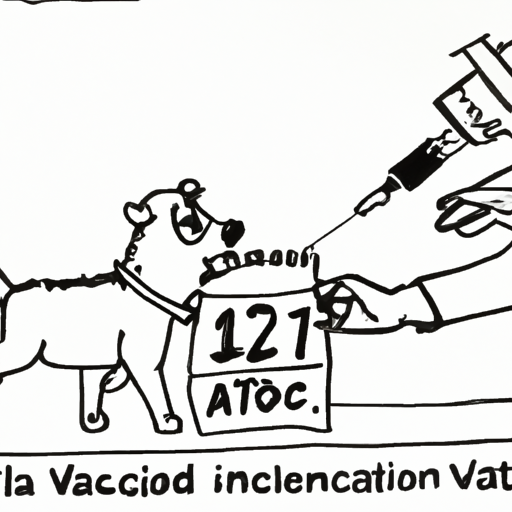As a caregiver, you might often find yourself wondering about the health and wellbeing of your furry friend. One of the crucial concerns that majority of dog owners have is about vaccinations, particularly the rabies shots.
Understanding Rabies and Its Significance
Rabies is a fatal virus that targets the nervous system, affecting all mammals, including dogs and humans. The virus is typically transmitted through the bite of an infected animal. The gravity of this disease underlines the importance of preventive measures such as vaccinations.
The Rabies Vaccination Schedule for Dogs
As a responsible caregiver, it is imperative for you to adhere to the vaccination schedule. Your pup should receive its first rabies shot between 3 and 6 months of age. Following this, the schedule is as follows:
- One Year Later: A booster shot is needed one year after the initial vaccination.
- Every 1-3 Years: Depending on the laws of your state and the type of vaccine used, booster shots should be given every 1 to 3 years.
Here’s a simple table to illustrate this:
| Age of Dog | Vaccination |
|---|---|
| 3-6 months | First Shot |
| 1 year | Booster Shot |
| Every 1-3 years | Booster Shots |
Factors Affecting the Frequency of Rabies Shots
While the general rule is to get a booster shot every 1 to 3 years, several factors might influence this timeframe:
- Local Laws: The frequency of rabies shots often depends on state laws. Some states require annual shots while others mandate it every three years.
- Type of Vaccine: Different vaccines have different efficacies. Some vaccines provide immunity for a year while others last for three years.
- Dog’s Lifestyle: A dog’s risk of exposure to rabies also dictates the frequency of vaccinations. Outdoor dogs or dogs frequently in contact with wild animals may need more frequent shots.
The Importance of Adhering to the Vaccination Schedule
The vaccination not only keeps your dog safe but also protects you and your family from potential exposure. Rabies is a zoonotic disease, meaning it can pass from animals to humans. By ensuring your dog is regularly vaccinated, you are playing your part in the larger public health perspective.
Frequently Asked Questions
Q1: What happens if I miss my dog’s booster shot?
- If you miss a booster shot, contact your vet as soon as possible. They might recommend restarting the vaccination course.
Q2: Can my dog get rabies even after vaccination?
- While rare, it is possible. No vaccine is 100% effective. Immediate veterinary care is necessary if your vaccinated dog is bitten by a suspected rabid animal.
Q3: Are there side effects to the rabies vaccine?
- As with any vaccine, side effects can occur but are generally rare. They can range from mild symptoms like lethargy and fever to severe allergic reactions.
Q4: Is the rabies vaccine mandatory?
- Yes, in most places, the law requires dogs to be vaccinated against rabies. Check your local laws for specifics.
Caring for a dog brings immense joy and a fair share of responsibilities. As a compassionate caregiver, ensuring your dog’s timely rabies vaccination can help secure a healthy and happy life for your furry friend.



